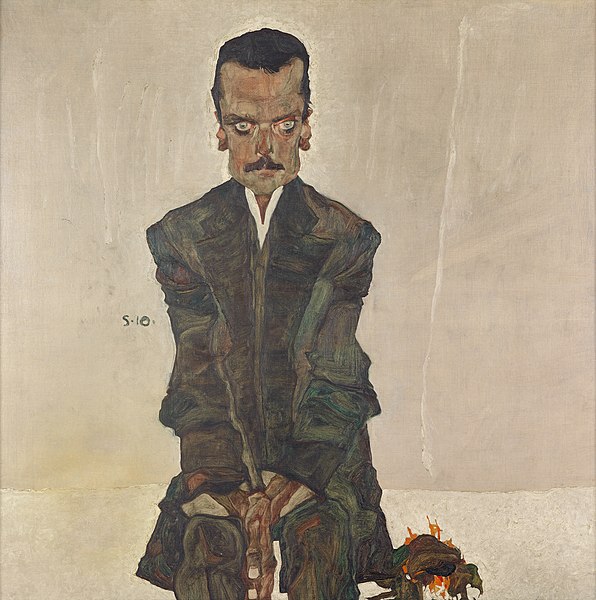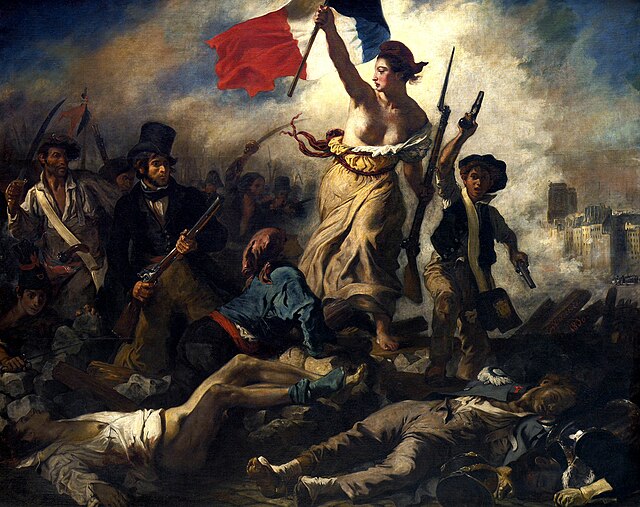Expressionism is a modernist movement, initially in poetry and painting, originating in Northern Europe around the beginning of the 20th century. Its typical trait is to present the world solely from a subjective perspective, distorting it radically for emotional effect in order to evoke moods or ideas. Expressionist artists have sought to express the meaning of emotional experience rather than physical reality.
Edvard Munch, The Scream, c.1893, oil, tempera and pastel on cardboard, 91 × 73 cm, National Gallery of Norway, inspired 20th-century expressionists.
El Greco, View of Toledo, c.1595/1610 is a Mannerist precursor of 20th-century expressionism.
Wassily Kandinsky, Der Blaue Reiter, c.1903
Egon Schiele, Portrait of Eduard Kosmack, c.1910, oil on canvas, 100 × 100 cm, Österreichische Galerie Belvedere
Modernism is an early 20th-century movement in literature, visual arts and music, that emphasized experimentation, abstraction and subjective experience. Philosophy, politics and social issues were also aspects of the movement which sought to change how 'human beings in a society interact and live together'. The modernist movement emerged during the late 19th century in response to significant changes in Western culture, including secularization and the growing influence of science. It is characterized as a rejection of tradition and a hunt for newer, more original means of cultural expression. Modernism was influenced by widespread technological innovation, industrialization and urbanization, as well as cultural and geopolitical shifts that occurred after World War I. Artistic movements and techniques associated with modernism include abstract art, stream of consciousness in literature, cinematic montage, atonal and twelve-tone music and modernist architecture and urban planning.

Pablo Picasso, Les Demoiselles d'Avignon (1907). This proto-cubist work is considered a seminal influence on subsequent trends in modernist painting.
Frank Lloyd Wright, Solomon Guggenheim Museum completed in 1959
Eugène Delacroix's Liberty Leading the People, 1830, a Romantic work of art
A Realist portrait of Otto von Bismarck. Modernist artists largely rejected Realism.








